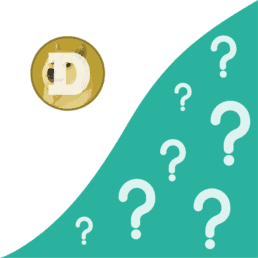What is a cryptocurrency?
Cryptocurrency is a decentralised, peer-to-peer digital currency on a blockchain network. In real terms, a cryptocurrency is a digital monetary system built on a collective network of computing systems to govern, verify and facilitate transactions. Cryptocurrencies can’t be counterfeited or tampered with and as such aren’t subject to manipulation from central authorities as all transactions are stored and verified on a public ledger called a blockchain.
So what does all of this mean for me when I’ve bitten the bullet and acquired some cryptocurrency? Suppose you want to send some cryptocurrency to a friend or relative. Once you’ve input the transaction and the address, similar to inputting an account number and sort code, the transaction will be verified by a computing system, similar to a process you’d expect from your bank. However, as the whole concept of the blockchain is to ensure security through decentralisation, unlike with banks, you will be charged a small transaction fee for the process. This fee covers the reward given to the computer networks that verify your transaction and ensure the integrity of the blockchain.
When we rely on centralised authorities our data is potentially unsafe and identities can be exposed should there be a breach in the security system of your bank for example. In the case of cryptocurrency, the data is secured with advanced mathematics called cryptography.
Decentralised and secure
Our traditional financial institutions manage your personal and financial data on their central servers; This data can be hacked, sold or exploited.
Cryptocurrency leverages blockchain technology to decentralise transaction processes entirely. Each transaction is stored on thousands of nodes worldwide. This means there is no single system or vulnerability that could be exploited.
Cryptocurrency transactions are also safeguarded with advanced cryptography secured across the network making it impossible to tamper with the data.
Secure validation
As cryptocurrency is decentralised, no central authorities validate or control the transactions you make. Bitcoin transactions are validated by miners and are added to the blockchain network. Miners use computing power to solve complex cryptographic puzzles to validate the transactions and are incentivised with crypto coins for their work. This monetary incentive works to keep the cryptocurrency blockchain up to date, efficient and secure.
Fast and global
Within our current financial systems, transferring (fiat) money to other countries can be time consuming and expensive. If you have done wire transfers before, you might be familiar with high fees and an often inconvenient long winded process.
Cryptocurrency transactions are usually completed within minutes, whether you send crypto coins to your neighbour or to any corner of the world.
Permissionless
Unlike banks where you have to open your bank account and submit necessary documents for governance, cryptocurrency allows you complete control of your assets.
You can easily download free software, known as a wallet, and you’re ready to send, receive and store cryptocurrency.
Summary
Cryptocurrency is a digital medium of exchange, completely free of political or central influence. It democratises financial systems, giving you complete control and freedom to manage your assets within the new financial ecosystem created by blockchain technology.
Learn more about cryptocurrency
What is Bitcoin?
What is crypto
What is Ethereum?
What is crypto
What is a Blockchain?
What is crypto
What is Money?
What is crypto
What is DeFi?
What is crypto
What is Chainlink?
What is crypto
What is a Whitepaper?
What is crypto
What is an ERC-20 Token?
What is crypto
What is Proof of Stake?
What is crypto
What is Proof of Work?
What is crypto
What is Stellar?
What is crypto
What is Tezos?
What is crypto
What is a Stablecoin?
What is crypto
What is Litecoin?
What is crypto
What is Cardano?
What is crypto
What is NEO?
What is crypto
What is Monero?
What is crypto
What is Bitcoin Cash?
What is crypto
What is Polkadot?
What is crypto
What is Basic Attention Token?
What is crypto
What is Solana?
What is crypto
What is Binance Coin?
What is crypto
What is Dogecoin?
What is crypto
What is a Bitcoin ETF?
What is crypto
What is a NFT?
What is crypto
Sign up to our newsletter
What is cryptocurrency?
Where to buy cryptocurrency?
How to buy cryptocurrency?
Manage cryptocurrency
Disclaimer
Our publications do not offer investment advice and nothing in them should be construed as investment advice. Our publications provide information and education for investors who can make their investment decisions without advice. The information contained in our publications is not, and should not be read as, an offer or recommendation to buy or sell or a solicitation of an offer or recommendation to buy or sell any cryptocurrency. Prices of cryptocurrency may go down as well as up and you may not get back the original amount invested. You should not buy cryptocurrency with money you cannot afford to lose. To see our full disclaimer click here.
























